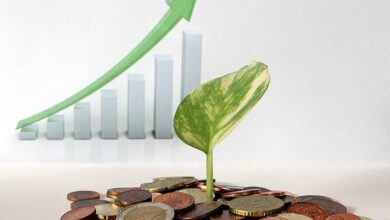What is State Interventionism measures characteristics liberalism
Interventionism
The term interventionism refers to the set of political-economic practices and ideologies in which the State interferes in the country’s economy. This practice can be through various mechanisms, such as monetary, fiscal and exchange rate policies.
The key point of interventionism is the influence and alteration of market behavior through State actions. The State‘s duty is to reduce inequality, improve income and employment for the working class and encourage economic development.
Therefore, its basis is the belief that, without the State, the economy is not able to develop .
Finally, interventionism is the opposite of liberalism , since the latter proposes minimal State intervention. That is, in the liberal scenario, the market is free to regulate itself without any state imposition.
Application of State Interventionism
1) a tax system;
2) subsidy and aid programs;
3) price control;
4) public spending.
This type of tool used by the state has obvious effects on consumption, economy, productivity, product prices and inflation. In some cases, intervention paradoxically consists of not intervening (this occurs when the state decides that the consumption of certain products is tax free).
Proponents of interventionism consider that the state must act as a fair arbiter that imposes useful rules on different actors in the economy.
What are the measures and characteristics of interventionism?
Through interventionism, the government of a nation is said to help the economy move forward. This can be done through measures such as:
subsidy distribution
Subsidy is a benefit granted by the federal , state or municipal government, or even by other corporations for specific sectors or companies. Beneficiaries play a very important role in a country’s economy. There are agricultural, diesel and real estate subsidies, for example.
Prohibition of production of certain goods
The three powers that make up the State can approve projects that prohibit the production of certain goods. In 2017, the STF, for example, prohibited the production, sale and use of materials that contain asbestos, used in the manufacture of roof tiles and water tanks, throughout the country.
As early as 2023, the Economic Development Commission of the Chamber of Deputies approved a bill that prohibits the production, sale and importation of aerosol foam sprays for recreational use, used at parties such as Carnival.
Regulatory agencies
Regulatory agencies in the most diverse economic sectors are created in the form of special regime autarchies. They are special agencies destined to regulate, control and supervise the execution of public services transferred to the private sector through concessions, permissions, etc.
In Brazil, there are the National Telecommunications Agency (Anatel), the National Electric Energy Agency (Aneel) and the National Petroleum Agency ANP and others.
Adoption of differentiated tax regimes
One way for the State to intervene in the economy is by adopting different tax regimes for internal trade, export or import.
The taxation regime is a system that determines how the tax collection of each CNPJ will take place , according to the amount of collection. In addition, it depends on several factors specific to the business, such as size, type of activity carried out and revenue.
In the Brazilian tax system, there are three types of tax regime: Lucro Real , Lucro Presumido and Simples Nacional .
In addition to those mentioned above, there are also the regulation of trade in goods and services and regulation of the means of production as interventionist measures.
What is the difference between interventionism and liberalism?
As you already know, interventionism believes that the State must use control mechanisms for the economy to develop. On the other hand, liberalism believes that the State should not intervene, that is, that the economy is capable of regulating itself.
In addition, liberalism is based on the concept of individual and mercantile freedom . Thus, the intention is that the individual is prioritized over the collective, providing a fair and egalitarian society.
For the liberal doctrine, the role of the State is to provide basic services such as health, education and justice , while other services must be free to self-regulate, according to the law of supply and demand .
We have listed the main features of liberalism below. Check them out:
- Minimum State (Reduction of State action);
- Law of supply and demand as a way of regulating the market;
- Individualism and appreciation of work;
- Reduction of economic barriers;
- Free market competition.
Liberals argue that, with no State intervention, investors feel more comfortable and confident to invest and undertake . Consequently, the economy begins to develop and create a greater number of jobs.


